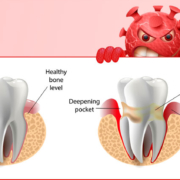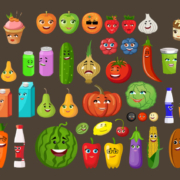Can Fasting Reduce Inflammation?
In this Memo, I’ll review the third paper from the recent journal Cell on fasting and summarize what this all may mean for the use of intermittent fasting.
Researchers used both mice and humans as subjects in a series of studies. The objective was to examine how the immune system responded to a fasting protocol. For the study in humans, the subjects fasted for 19 hours after eating, with blood samples taken before and after the fast. In the mice, a variety of protocols were used. The most common was mice were fed for a short time before food was withheld for the remainder of 24 hours.
In mice and humans, circulating monocytes were reduced. This was important because they were pro-inflammatory in nature; thus inflammation decreased in response to the fasting protocol. In some of the studies, this reduction was maintained even with exposure to pathogens. That means the immune response was not compromised even in animals with induced autoimmune diseases.
Fasting Protocols
Three different studies used at least three different approaches to fasting. In the first study, food was withheld completely for 36 hours. In some phases of the second study, calories were reduced by 50% although the vitamins, minerals, and protein were maintained at normal levels. The final study used a fasting protocol we’re most familiar with: eat within a few hours and liquids only the remainder of the day.
The results were similar in sustaining and perhaps improving the immune system of the animals when placed under pathogenic stress. The only issue is what form of dietary restriction worked best? You can’t ask mice how they felt; you can only check immune system markers. In one of the approaches, the skin of the mice was injured at different times of continued fasting. The healing ability continued until the fast went beyond 48 hours; after that wound-healing was impaired.
The Bottom Line
These studies haven’t changed my approach to fasting. If you’re going to fast to rejuvenate your immune system, don’t play games. Reduce caloric intake to 500 to 800 calories per day for two to three days; those studies show the best benefit. Be sure to select small quantities of the healthiest foods.
Fasting is not abstinence. The current approaches to intermittent fasting are really intermittent abstinence. The idea is to abstain from food completely for 12 to 18 hours while still drinking liquids. That may not be possible for everyone. Some medications have to be taken in relation to food intake. Pre-diabetics and type 2 diabetics should still monitor blood sugar, especially if exercising during the fasting times. The current intermittent fasting approach is more about controlling when you eat than anything else, and that’s something you should do anyway.
I believe in fasting. That’s why I wrote Real-Life Detox—so you could do it right and gain the most benefit. The critical thing is to find a way to eat that you can sustain for the rest of your life, and that includes occasional fasts.
Eat less. Eat better. Move more. That’s always the goal.
What are you prepared to do today?
Dr. Chet
References:
1. Cell. 2019. DOI:https://doi.org/10.1016/j.cell.2019.07.047.
2. Cell. 2019. DOI:https://doi.org/10.1016/j.cell.2019.07.049.
3. Cell. 2019. DOI:https://doi.org/10.1016/j.cell.2019.07.050









